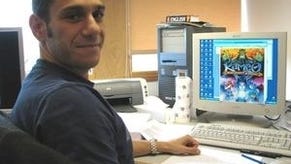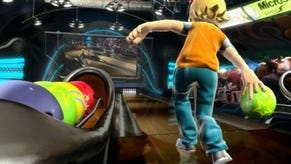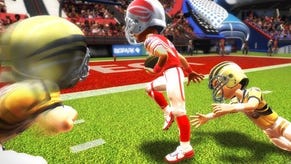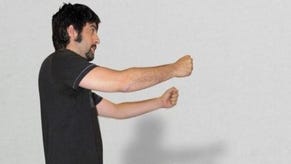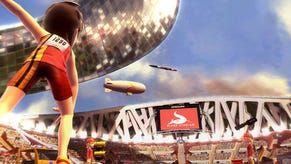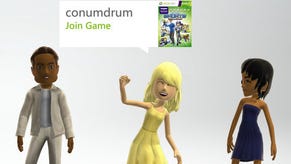Rare on Kinect Sports
Nick Burton on how Rare got involved with Kinect and why you should give it a try.
Uninterested? Sceptical? Cynical? Outright angry? It's fair that Rare, the creator of Kinect launch game Kinect Sports, is yet to convince all core gamers, and indeed many old school Rare fans, to dump their Xbox 360 controllers in favour of... Well, themselves.
But perhaps it's just a big misunderstanding. Perhaps videos on the internet don't do Kinect justice. Perhaps marketing trailers packed with smiley happy families tell only half the story. Perhaps there's more to Kinect than we think. This is what Rare's Kinect development director Nick Burton is here at the Edinburgh Interactive Festival to argue.
Speaking to Eurogamer, Burton reveals the events that triggered Rare's development of Kinect Sports, explains why it's as competitive an experience as Halo, and urges the hardcore to give it a shot.
Two years ago in October was the first time we saw Kinect. I flew out with a few of the guys from Rare to Redmond to see this fabled thing that was going on at Microsoft. Everybody would whisper, 'Single sensor motion tracking.' But nobody actually knew what it was.
So we went to meet Alex Kipman, who was the incubator of the project. And even though we saw something very early, we were blown away by the possibilities of it. Blown away and scared at the same time.
I remember having a conversation on the flight back, talking to our creative director George [Andreas], and he was going, well, that's it, isn't it? We've set fire to the rulebook, thrown it out the window and run it over with a steamroller. And I'm going, yeah, but think of all the things you can do with it.
So, we really didn't know what we could do with it. Obviously the technology was early. But we had to start proving some things out, because making a game, you're going to need at least 12 to 18 months, especially when you're going for the launch and the technology is still developing. We already knew roughly when the launch was going to be.
All we could do, really, was start rapid-prototyping things. All manner of things. We were setting up a programmer-designer pair together and saying, 'Right, you've got no more than a week. That's it. And then we want to see something. It can be as rough as you like, but it's got to prove some sort of concept.'
Yeah. We have a seagull simulator.
You flapped your arms together. It was kind of like Pilotwings. You could get really high, and then you could soar, get an air current. I've talked about this a few times because it was so cool. You were standing up and obviously going like this [stands up and flaps arms], and people were going, 'You look like an idiot.' You were going, 'Look, I can go between the skyscrapers.'
And then it started to get finessed a little bit more. The guy who was working on it, he went, 'Well, I want some aim to this.' So he put cars in the scene. If you crouched, it went 'Plop.'
Exactly. So it was a fully-featured seagull simulator. The only thing you couldn't do was steal people's lunch. God knows what would have happened...
There was everything from insane things like that to much more sensible things that actually grew legs, as we call it, with the design. Something like table tennis, for instance, which was one of the very early prototypes.
We had - I'm not joking here - 20 or 30 little games that were just proving out some sort of concept. The ones that always got a crowd were sports. Whatever that sport was, it was sports. I remember the goal kicks, one of the first prototypes we did that started to lead to soccer... Football.

